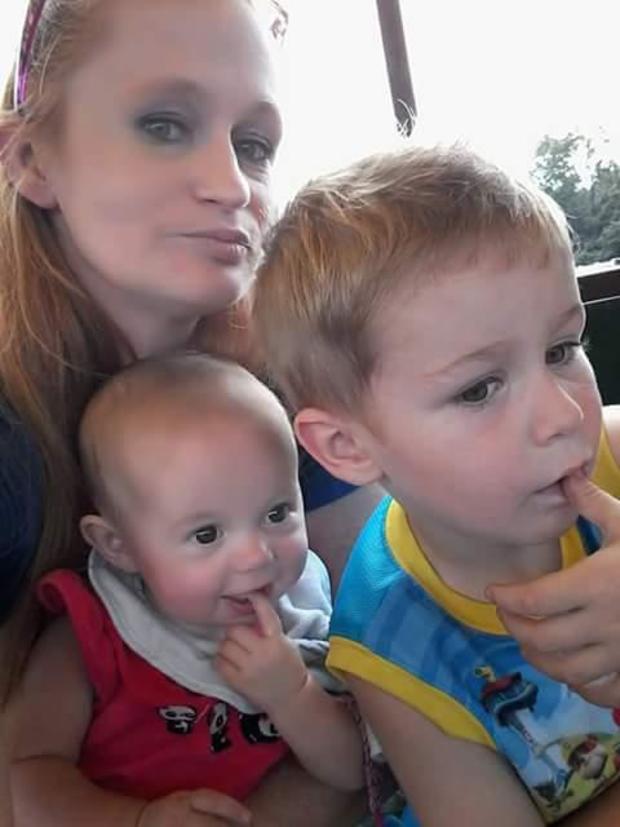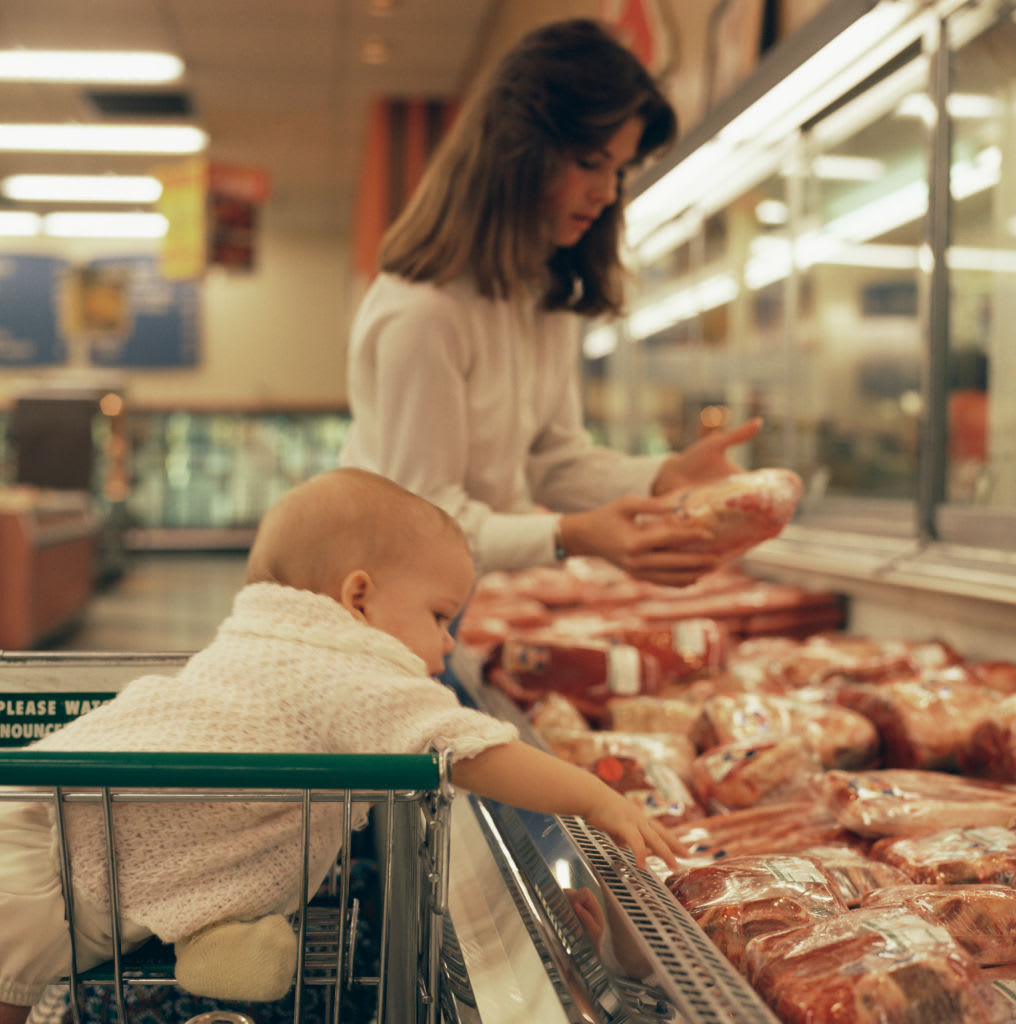1 in 3 U.S. families have trouble affording diapers, survey finds
When Megan Ohlinger was pregnant with her second child earlier this year, her pregnancy was considered high risk. Her daughter Serenity was born four weeks premature with a number of health issues, leaving the single mother unable to work.
Ohlinger, 32, was having difficulty making ends meet, especially with the added costs of having a new baby to care for. One expense that was particularly difficult to afford was diapers.
"Some months it would be between paying for the electric bill or paying for diapers," she told CBS News.
Ohlinger's story is a common one across the country.
In fact, a new survey finds 1 in 3 families in the United States experiences "diaper need" — difficulty providing enough diapers to keep a baby or toddler consistently clean, dry, and healthy.
The survey was conducted by Huggies in partnership with the National Diaper Bank Network. According to the report, the average cost of diapers for one child is $18 per week, or $936 a year.
Not being able to afford enough diapers often means parents end up leaving a child in wet, dirty or reused diapers for a prolonged period of time, which can lead to a number of health effects for both mom and baby.
"Needing to leave children longer in dirty diapers increases the risk of urinary tract infection and what's called diaper dermatitis, or diaper rash, which as you can imagine increases the likelihood that the child will be fussy or difficult to soothe," said Dr. Megan Veenema Smith, an associate professor of psychiatry and co-director of the Yale Child Study Center Parent and Family Development.
Smith was the author of a 2013 study published in the journal Pediatrics that found 30 percent of mothers surveyed reported diaper need.
The inability to provide enough clean diapers for children can also lead to emotional stress and depressive symptoms in parents, which in turn can also affect baby.
"When parents are feeling increased stress because of needing to leave children longer in dirty diapers, that impacts the parents' ability to bond with their child," Smith said. "We know how important that is because when children don't have secure attachments early in life that actually impacts how their brains develop, how they learn and how they form social relationships, so the impact diaper need can have on that attachment has really lifelong consequences."
Ohlinger admits to feeling emotional distress at not being able to afford diapers for her daughter.
"As a parent you think you can do all you can for your children, including providing for them everything they need and being able to provide enough diapers, and when you can't do that, you feel like you've failed as a parent," she said.
The new report on the extent of diaper need included information from 1,000 households with young children from across the United States. The majority of the respondents — 65 percent — are married, and two-thirds are employed, with 14 percent saying they work multiple jobs to make ends meet. A second online survey dug deeper into the views of 400 households identified as having diaper need.
Families were defined as having experienced diaper need if they agreed with at least one of the following statements: the household doesn't have enough diapers to keep children clean, dry, and healthy; the household finds it difficult to afford diapers; or the household frequently finds itself running out of diapers.
About three-quarters of parents in diaper need admitted they felt embarrassed that they cannot afford diapers and 80 percent agreed that those in need are hesitant to talk about their need with others.
Kate E. Cuno, PsyD, works with the Healthy Steps program at Montefiore Medical Center in the Bronx, New York, which provides child development and behavioral health services for children from birth to age 5 and their parents. She says she sees the effect of diaper need often in her practice.
"While we don't see families necessarily ask for diapers or express that need directly, we see the consequences of it very, very frequently," she told CBS News. "When it comes to the medical issues — urinary tact infections, frequent diaper rashes."
Cuno, who was not involved with the National Diaper Bank Network study, said her practice also sees families who have to potty train their children potentially earlier than they're developmentally ready for, as a result of diaper need.
"To put that level of stress on children to be able to communicate something they might not be ready to do, while it's not going to necessarily cause future developmental issues, it can put a level of stress on a kid that can prevent them from doing all the jobs that we want them to do at that age," Cuno said.
Resources for parents in diaper need are available, including from the National Diaper Bank Network, which operates more than 300 locations across the country to provide donated diapers and wipes to families in need.
"We want to help the community to understand what a significant issue this is," said Joanne Goldblum, executive director of the National Diaper Bank Network. "We also want to make it easier for people to talk about this because what we're finding is people are not comfortable admitting this is hard but part of what we've found is this is so common. When we're more open about our lives and our families and what we need the more we're able to get to help."
Ohlinger connected with a local diaper bank where she lives in Cincinnati, which has helped her provide adequate diapers for her baby.
"It's been a huge blessing and weight lifted off my shoulders," she said.
Ohlinger said she wants other parents who are struggling to know there is hope.
"Everybody has some rough spots in their life, but there is light at the end of the tunnel and there are things that can help you in the process of reaching that light," she said.
To find out if an agency in your area provides diaper assistance to families in need, you can call United Way's local service directory by dialing 2-1-1.
Editor's note: This article has been updated with new information from the study's sponsor to correct the number of families surveyed and to clarify that Yale researchers were involved in the 2013 study, not the new one.




